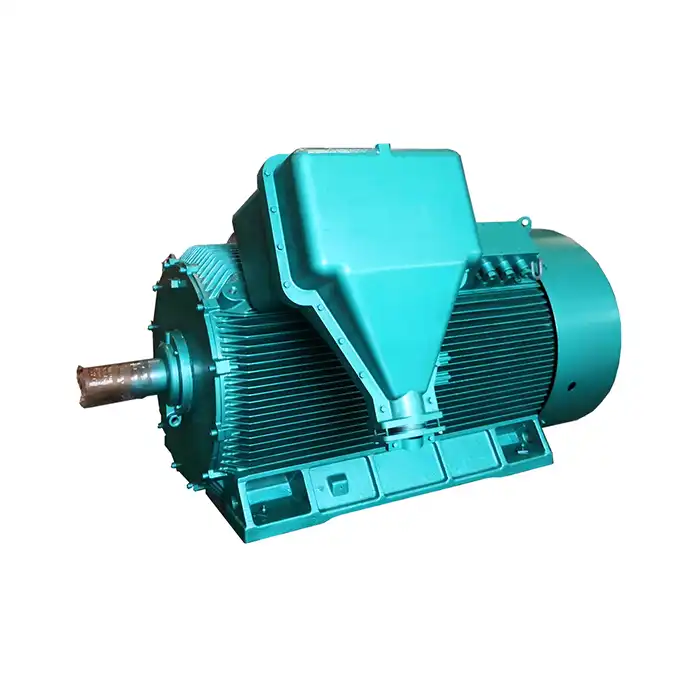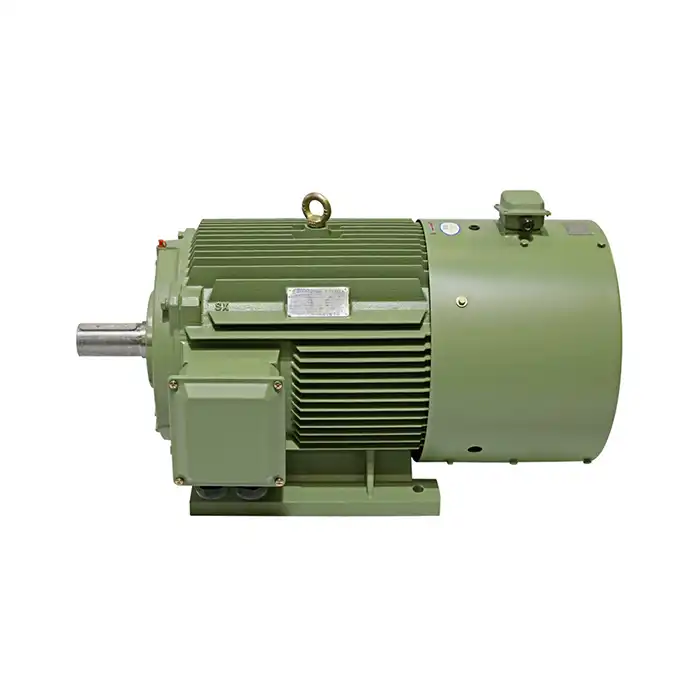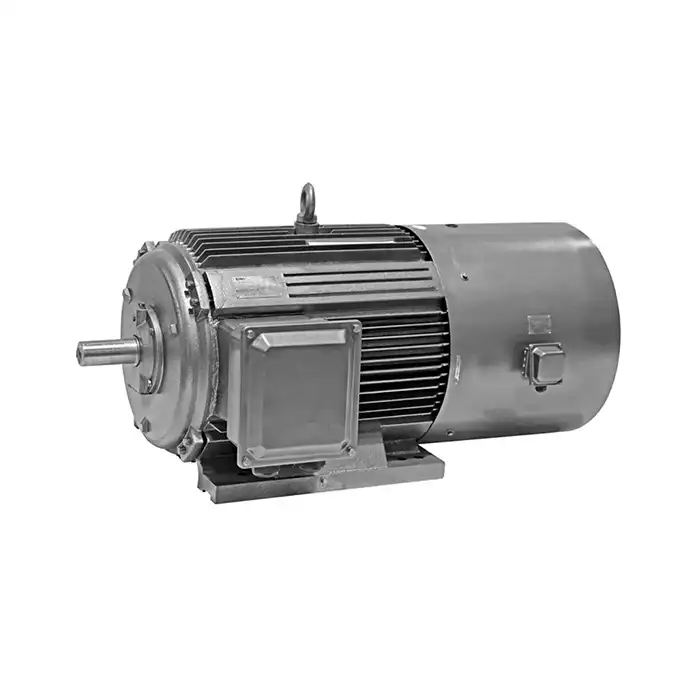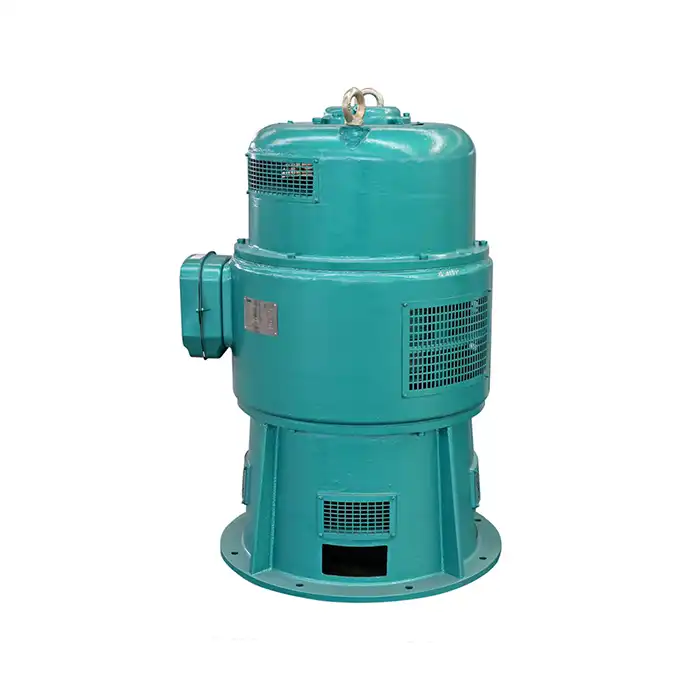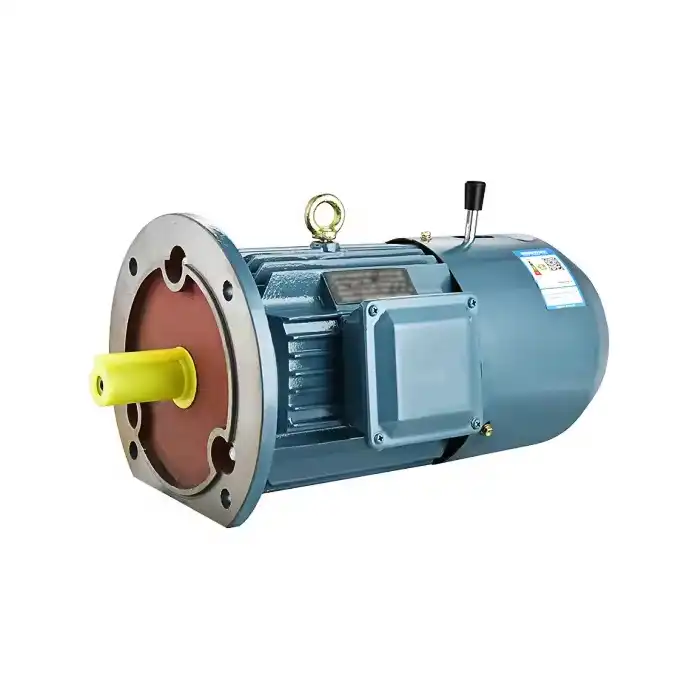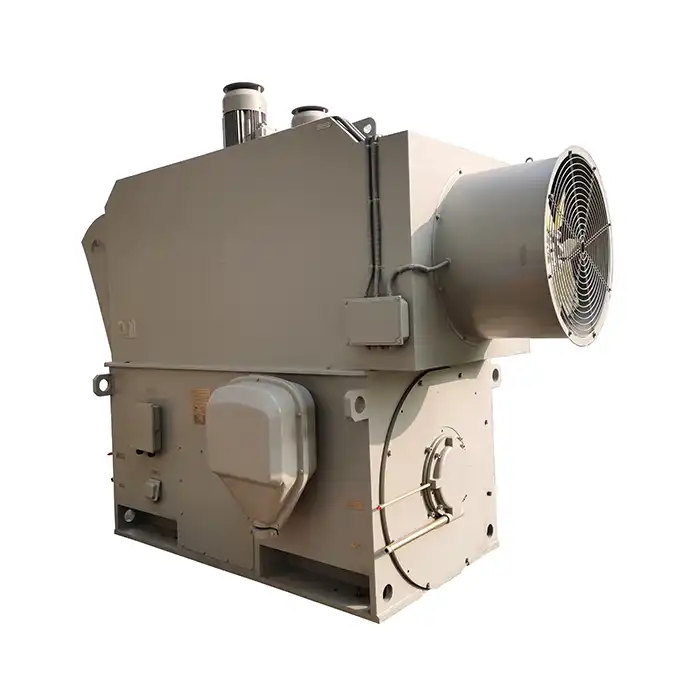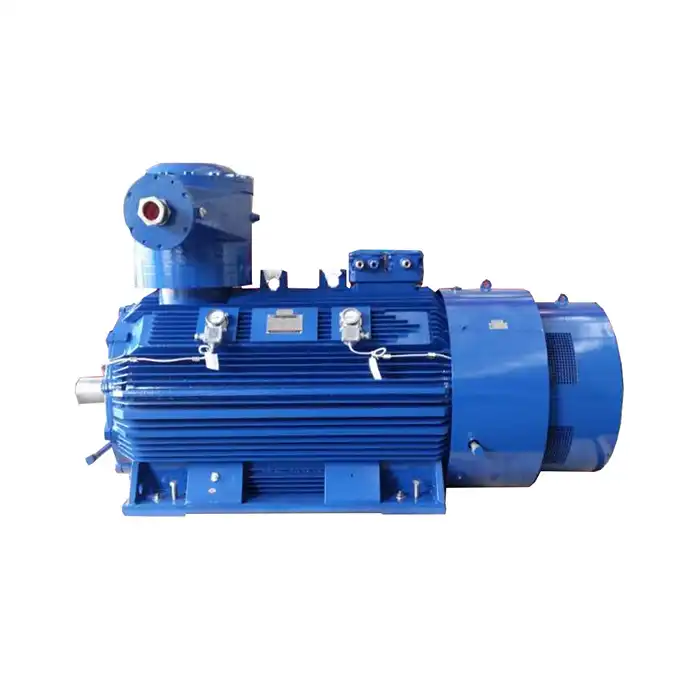How does cooling affect the performance of IC611 motors?
The IC611 motor is a sophisticated piece of machinery designed for high-performance industrial applications. One of the key factors that significantly impacts its performance is the cooling system. In this comprehensive guide, we'll examine how cooling affects IC611 motors, compare cooling efficiencies, and discuss optimal airflow requirements.
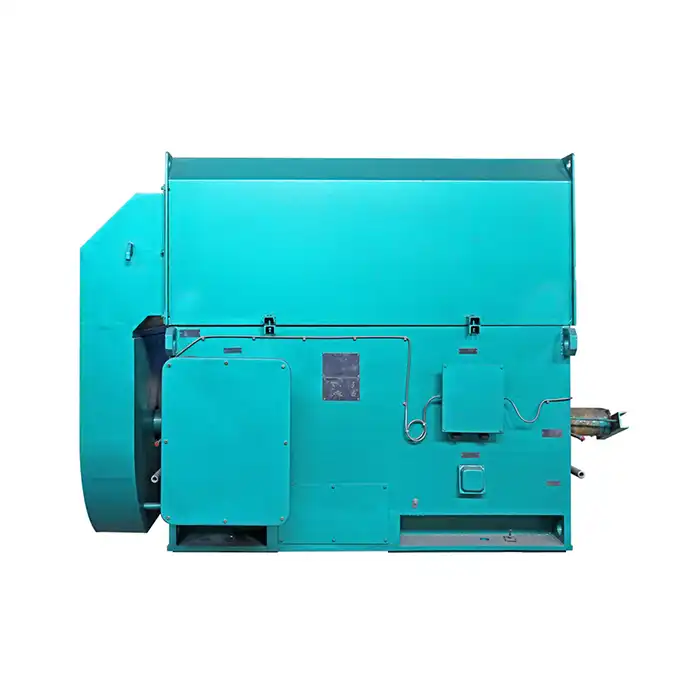
How does cooling extend the service life of IC611 motors?
Effective cooling plays a crucial role in extending the service life of IC611 motors. These motors, known for their reliability and efficiency, benefit greatly from proper thermal management. Let's delve into the specific ways cooling contributes to the longevity of these powerful machines.
Temperature regulation and component preservation
The primary function of cooling in IC611 motors is to regulate internal temperatures. By maintaining optimal operating temperatures, cooling systems help preserve vital components such as:
- Windings
- Bearings
- Insulation
- Rotor
When these components are kept at appropriate temperatures, they experience less thermal stress and degradation, leading to a longer operational lifespan.
Prevention of thermal breakdown
Excessive heat is a major enemy of electric motors. The cooling system in IC611 motors works tirelessly to prevent thermal breakdown, which can occur when temperatures rise beyond safe limits. By efficiently dissipating heat, the cooling mechanism helps avoid:
- Insulation failure
- Bearing lubrication breakdown
- Winding deterioration
These preventive measures significantly contribute to the motor's overall durability and reliability.
Efficiency maintenance
As IC611 motors operate, they generate heat as a byproduct of energy conversion. Without proper cooling, this heat can lead to increased electrical resistance in the windings, reducing the motor's efficiency over time. An effective cooling system helps maintain the motor's efficiency by:
- Keeping resistance levels low
- Ensuring consistent power output
- Minimizing energy losses
By preserving efficiency, the cooling system indirectly extends the motor's useful life by reducing operational stress and wear.
Cooling efficiency comparison between IC611 and IC616 motors
While both IC611 and IC616 motors are designed for high-performance applications, their cooling systems differ in design and efficiency. Understanding these differences can help in selecting the most suitable motor for specific industrial needs.
IC611 cooling system overview
The IC611 motor employs a fully enclosed fan-cooled (TEFC) design with an air-to-air heat exchanger. This system offers several advantages:
- Enhanced protection against environmental contaminants
- Efficient heat dissipation through the heat exchanger
- Consistent cooling performance in various operating conditions
The IC611 motor's cooling efficiency is particularly beneficial in environments where maintaining a clean internal motor environment is crucial.
IC616 cooling system characteristics
In contrast, the IC616 motor utilizes a different cooling approach:
- Internal fan mounted on the motor shaft
- Open external circuit with forced ventilation
- Direct air-to-air cooling without a heat exchanger
This design allows for more direct cooling but may be more susceptible to environmental factors.
Efficiency comparison
When comparing the cooling efficiencies of IC611 and IC616 motors, several factors come into play:
- Heat dissipation rate
- Environmental protection
- Energy consumption of the cooling system
- Adaptability to different operating environments
The IC611 motor generally offers superior protection against environmental contaminants and more consistent cooling performance across various conditions. However, the IC616 motor's direct cooling approach can be more efficient in certain clean environments.
Airflow requirements for optimal performance of IC611 motors
Proper airflow is essential for the optimal performance of IC611 motors. Understanding and meeting these requirements can significantly impact the motor's efficiency, reliability, and lifespan.
Calculating airflow needs
Determining the correct airflow for an IC611 motor involves considering several factors:
- Motor power rating
- Ambient temperature
- Altitude of installation
- Duty cycle
These factors help in calculating the volume of air needed to maintain optimal operating temperatures.
Importance of unobstructed air paths
For IC611 motors to perform at their best, it's crucial to ensure unobstructed air paths. This involves:
- Regular cleaning of air intake and exhaust ports
- Proper spacing around the motor for adequate air circulation
- Avoiding the accumulation of debris or other obstructions near the motor
Maintaining clear air paths helps the cooling system operate at peak efficiency, ensuring consistent motor performance.
Impact of ambient conditions on airflow requirements
Ambient conditions play a significant role in determining the airflow requirements for IC611 motors. Factors to consider include:
- Temperature fluctuations
- Humidity levels
- Altitude
- Presence of airborne contaminants
Adjusting airflow based on these conditions helps maintain optimal motor performance across various operating environments.
Monitoring and maintaining airflow
Regular monitoring and maintenance of airflow are essential for the long-term performance of IC611 motors. This includes:
- Periodic airflow measurements
- Inspection of cooling system components
- Timely replacement of air filters
- Adjustment of cooling parameters based on operational data
By staying proactive in airflow management, operators can ensure their IC611 motors continue to perform at peak efficiency.
Innovative cooling technologies for IC611 motors
As technology advances, new cooling solutions are being developed to enhance the performance of IC611 motors. Some innovative approaches include:
- Advanced heat exchanger designs
- Smart cooling systems with adaptive control
- Integration of phase-change materials for improved heat absorption
- Use of high-efficiency, low-noise fan designs
These advancements aim to further improve cooling efficiency while reducing energy consumption and noise levels.
Balancing cooling efficiency and energy consumption
While effective cooling is crucial for IC611 motor performance, it's equally important to balance cooling efficiency with energy consumption. Strategies to achieve this balance include:
- Implementing variable speed cooling fans
- Optimizing cooling system design for specific applications
- Utilizing thermal modeling to predict and manage heat distribution
- Incorporating energy-efficient materials in motor construction
By finding the right balance, operators can ensure their IC611 motors perform optimally while minimizing overall energy usage.
Environmental considerations in IC611 motor cooling
As industries move towards more sustainable practices, the environmental impact of motor cooling systems is gaining attention. For IC611 motors, this translates to:
- Development of eco-friendly coolants
- Design of recyclable cooling components
- Implementation of energy recovery systems in cooling circuits
- Reduction of the overall carbon footprint of motor operations
These environmental considerations not only benefit the planet but can also lead to cost savings and improved public perception for businesses utilizing IC611 motors.
Future trends in IC611 motor cooling
Looking ahead, several trends are likely to shape the future of cooling systems for IC611 motors:
- Integration of artificial intelligence for predictive cooling management
- Development of self-cleaning cooling systems
- Utilization of nanotechnology for enhanced heat transfer
- Adoption of hybrid cooling solutions combining multiple technologies
These advancements promise to further improve the efficiency, reliability, and environmental friendliness of IC611 motors in various industrial applications.
Conclusion
In conclusion, the cooling system plays a vital role in the performance and longevity of IC611 motors. From extending service life to maintaining efficiency, proper cooling is essential for these powerful machines. By understanding the cooling requirements, comparing efficiencies with other models, and implementing optimal airflow strategies, industries can maximize the potential of their IC611 motors.
Are you looking to optimize the performance of your industrial motors or seeking high-efficiency power equipment solutions? Shaanxi Qihe Xicheng Electromechanical Equipment Co., Ltd. specializes in providing cutting-edge power equipment with high energy efficiency, low energy consumption, and stable power output. Whether you're in manufacturing, process control, HVAC, energy production, or any other industrial sector, our team is ready to assist you with pre-sales consultations, after-sales support, and technical expertise. Take the next step in enhancing your operations with our advanced motor solutions. Contact us today at xcmotors@163.com to discuss how we can meet your specific power equipment needs and help you achieve optimal performance in your industrial applications.
References
1. Johnson, A. R. (2021). Thermal Management in High-Performance Electric Motors: A Comprehensive Review.
2. Smith, B. T., & Thompson, C. L. (2020). Comparative Analysis of Cooling Efficiencies in Industrial Motor Systems.
3. Rodriguez, M. E., et al. (2022). Optimizing Airflow for Enhanced Motor Performance in Industrial Applications.
4. Chen, X., & Li, Y. (2019). The Impact of Cooling on Electric Motor Longevity and Efficiency.
5. Wilson, D. R. (2023). Advancements in Cooling Technologies for High-Power Industrial Motors.
6. Brown, J. K., & Davis, S. M. (2022). Environmental Considerations in Industrial Motor Cooling Systems: Present and Future.



